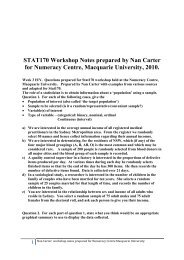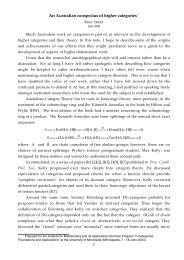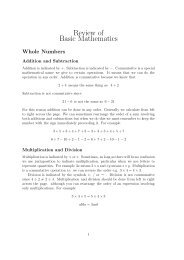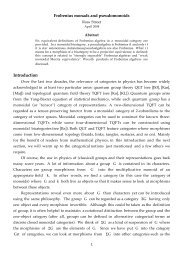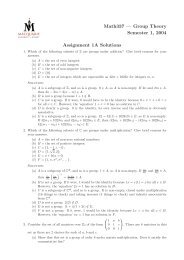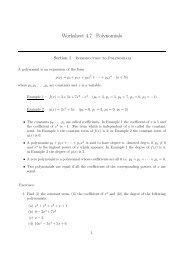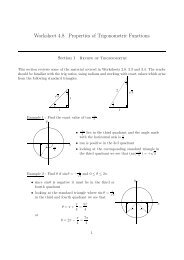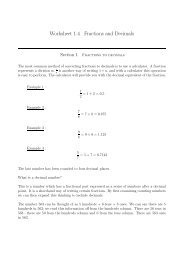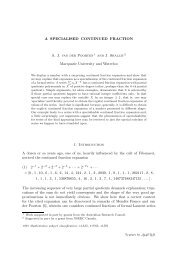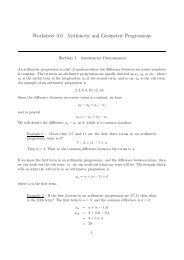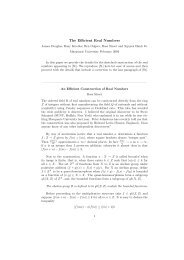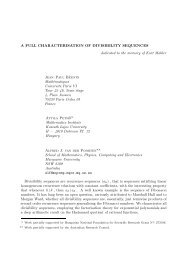Create successful ePaper yourself
Turn your PDF publications into a flip-book with our unique Google optimized e-Paper software.
The next layer of risk in this whole area of layers of fiction, and layers of<br />
authorship, is a deepening duplicity and a growing loss of trust. I particularly<br />
did a double-take on this passage:<br />
Though I describe imperfect characters, I have not undertaken to<br />
handle degraded or utterly infamous ones. Child-torturers, slave<br />
masters and drivers, I consign to the hands of a jailor; the novelist may<br />
be excused from sullying his page with the record of their deeds.<br />
I’m a little unbalanced by the fact that the author refers to herself in the first<br />
and third persons all in the one sentence. There is a link between selfconsciousness,<br />
or heightened states of awareness, on the one hand, and the<br />
Luddites, on the other. And I’m still uneasy about the double entendre of<br />
‘something real lies before you’.<br />
So – I’ll leave you with three questions, one of which I’ll have a stab at<br />
answering, and two I’ll leave to you to think about.<br />
1) Who is the author of the novel Shirley’?<br />
At least seven candidates come to mind: Firstly, Charlotte Brontë the person;<br />
secondly, Currer Bell the pseudonym; thirdly, Charlotte’s predecessors<br />
amongst the world of novelists – this whole approach of having a chat with<br />
the reader being done in the wake of prior exponents, and arguably done<br />
better; fourthly, the characters in the book had a lash at authorship, notably<br />
Louis Moore, sitting in the schoolroom writing about how he proposed to<br />
Shirley. And as an aside, my take on that was that Jane Austen had ghost<br />
written that part – because the phrasing ‘Could I now let her part as she had<br />
always parted from me? No: I have gone too far not to finish’ was to my<br />
ears an exact rip-off of Mr Knightley’s proposal to Emma; fifthly, reality was<br />
an author, as we’ve seen in the case of Oakwell Hall and Anne Bronte; sixthly,<br />
some mythical neighbour of Shirley’s in the fictional parish of Briarfield puts<br />
her hand up as the author in the dying pages of the book. Or puts his hand<br />
up. And, of course you, the reader.<br />
These two I’ll leave to you:<br />
2) Who is the reading audience of Shirley?<br />
3) was her name really Shirley?<br />
A useful reference:<br />
Carol A Bock, ‘Storytelling and the Multiple Audiences of Shirley’ in <strong>Journal</strong> of<br />
Narrative Technique<br />
- 60 -




